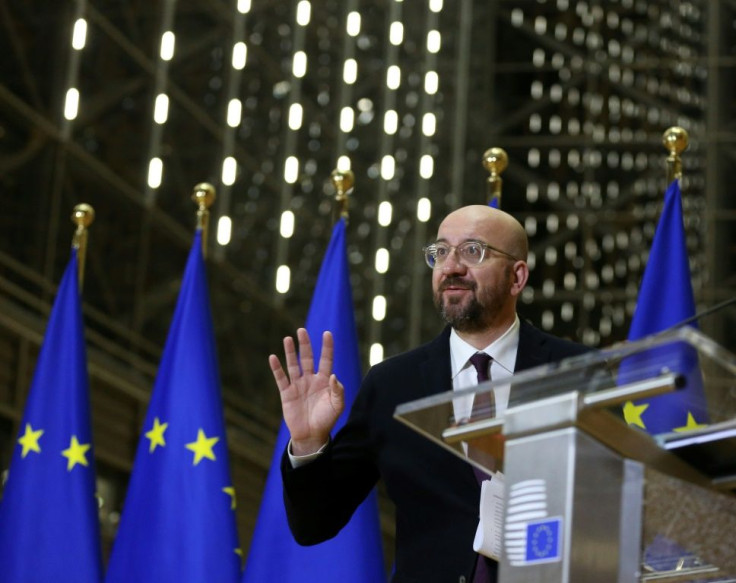Divided EU Leaders Bicker Over Virus Recovery Plan

EU leaders are set to haggle on Thursday over a giant package to help their economies recover from the coronavirus pandemic, but bitter divisions mean little progress is expected.
The situation facing the EU is dire: more than 110,000 confirmed COVID-19 deaths and the economy suffering an unprecedented collapse according to alarming fresh data.
But while the 27 members agree that a stimulus running into hundreds of billions of euros (dollars) will be needed, they are split over how it should be funded and shared.
The leaders will meet by videolink to discuss the virus crisis for the fourth time in seven weeks -- a sign, one senior Brussels official said, of the "seriousness of the challenge and the importance we attach to a common solution".
German Chancellor Angela Merkel, Europe's most influential leader, gave her firm backing to beefing up the EU budget, but others are looking for more novel ways to reboot the economy, including joint borrowing.
The fight has reopened the wounds of the 2009 financial crisis, once again pitting northern and southern Europe against one another.
Southern states like Spain and Italy, badly hit by the disease and heavily indebted, are demanding "solidarity" -- financial help -- from their richer partners far beyond what the EU budget can provide.
"The countries of the south have the impression that certain states, which are currently economically stronger, will use this crisis to be even stronger," a senior European official told AFP.
"And those in the north believe that the south will take advantage of the pandemic to unburden themselves of past debt," the source added.
Italian Prime Minister Giuseppe Conte, has pushed the hardest for mutualised EU debt, dubbed "coronabonds".
He told the Italian parliament on Tuesday he would accept "no compromises" and would not sign up to a "bargain deal".
On the other side, northern countries led by Germany and the Netherlands refuse even to entertain the idea of coronabonds and other mooted solutions.
Spain has proposed the idea of "perpetual bonds", usually only used in wartime, that has already been dismissed by the north.
"The European budget has for decades been the tried and tested instrument for common tasks in the EU," Merkel told lawmakers in Berlin ahead of the crunch talks.

"In the spirit of solidarity, we should be prepared to make completely different, that is to say significantly higher contributions to the European budget over a set period," Merkel said.
In a sign of how far apart they are, leaders will not even issue their usual joint statement after the videoconference, a diplomat told AFP.
EU Council President Charles Michel, the nominal host of the summit, set a low bar in the invitation letter sent to leaders on Tuesday.
He urged them only to "work towards" creating a European Recovery Fund to rebuild the bloc's economy after the pandemic eases.
The leaders are expected to ask the European Commission, the bloc's executive in charge of the EU budget, to come back with a proposal.
They will also sign off on a 540-billion-euro ($584-billion) emergency package agreed by EU finance ministers earlier this month.
The summit takes place as a closely watched business survey said the eurozone economy was living an "unprecedented" collapse.
"The ferocity of the slump has ... surpassed that thought imaginable by most economists," said the chief economist of IHS Markit Chris Williamson.
The cost of rebuilding will be enormous and various figures have been bandied around for the recovery fund, though no decision is expected on that by EU leaders on Thursday.
Mario Centeno, head of the Eurogroup of eurozone finance ministers, has suggested a range of 700 billion to 1.5 trillion euros and French Finance Minister Bruno Le Maire has mooted one trillion.
A senior EU official acknowledged no plan was likely before the summer but said Thursday's meeting could see progress on ways to include the recovery fund in the bloc's new seven-year budget, as wished by Berlin.
But even before the pandemic, months of negotiation of the EU's 2021-27 budget caused bitter fights among the EU leaders.
A summit in February ended in acrimony with similar north-south divisions over spending priorities.
© Copyright AFP {{Year}}. All rights reserved.




















